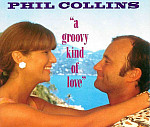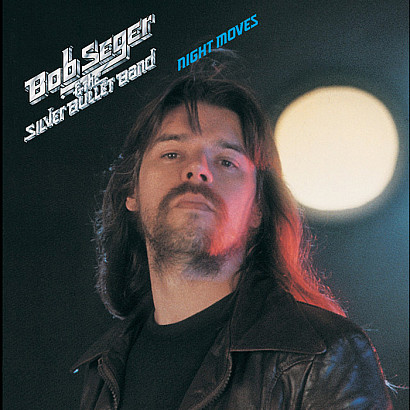22
Featured Events
2012Taylor Swift releases her fourth album, Red. The first single is the #1 "We Are Never Ever Getting Back Together," a kiss-off to an ex she refuses to name.
2008Guns N' Roses release their first new material since 1999 when the title track of their new album Chinese Democracy is issued as a single. The band - with Axl Rose as the only original member - first performed the song in 2001.
 2003In the middle of their first world tour and flush with fame from their debut album, Evanescence founder Ben Moody abruptly quits the band.More
2003In the middle of their first world tour and flush with fame from their debut album, Evanescence founder Ben Moody abruptly quits the band.More
1990The band Mookie Blaylock, soon be known as Pearl Jam, make their stage debut at The Off Ramp in Seattle. In the audience are members of Soundgarden and Seattle Mariners pitcher Randy Johnson.
 1988The #1 hit in America is a cover of a song from 1966: "A Groovy Kind Of Love" by Phil Collins.More
1988The #1 hit in America is a cover of a song from 1966: "A Groovy Kind Of Love" by Phil Collins.More
1966The Supremes become the first girl group with a #1 album in the US when The Supremes A' Go-Go bumps The Beatles' Revolver from the top spot.
1965The Beatles' "Yesterday" is the #1 single in the US, while The Rolling Stones' "(I Can't Get No) Satisfaction" is #10.
22
In Music History
2019Stephen Morris disembarks from a train in South East London leaving behind a violin made in 1709; it is valued at £250,000! A short time later, Morris gets a message on Twitter from the person who took it, and he gets the instrument back.
2017Marilyn Manson guitarist Daisy Berkowitz (real name: Scott Putesky) dies of colon cancer at age 49.
2017The Easybeats leader George Young ("Friday On My Mind"), dies at age 70. He was the brother of Angus and Malcolm Young of AC/DC.
2012Garth Brooks is inducted into the Country Music Hall of Fame. George Strait, Bob Seger, and James Taylor perform at the ceremony.
2006Gerald Cook, pianist with the Illinois Symphony Orchestra, dies in Chicago, Illinois, at age 85.
2005The Strokes make their first and only appearance on the Billboard Hot 100 when "Juicebox" peaks at #98. The First Impressions Of Earth single fares much better in the UK, where it lands at #5.
2001Rev. Howard Finster - a Baptist minister who also designed '80s album covers for the likes of R.E.M. and Talking Heads - dies of congestive heart failure at age 84.
2000R.E.M. returns to their hometown of Athens, Georgia, where they play three songs on the courthouse steps as part of a local festival called Land Aid, which is an effort to better the community.
1999The Temptations earn their first platinum record when their 56th album Phoenix Rising finally sells its millionth copy.
1998Robert E. True (guitarist for The Vagabonds) dies of skin cancer in Burbank, California, at age 82. True started his musical career at age 16 in MGM's studio orchestra.
1997Jazz bassist Harry Goodman - brother of King of Swing bandleader Benny Goodman - dies of complications from a stroke at age 91.
1997In Italy, the Big 5 record labels - BMG, EMI, PolyGram, Sony and Warner Music - are found guilty of establishing a price-fixing cartel and fined the equivalent of $4.5 million.
1997Appearing on the BBC TV show Clive Anderson – All Talk, the Bee Gees walk out of their interview after several minutes of uncomfortable conversation where they are derided by the host. At one point, Anderson calls them "hit writers," and then adds, "We're one letter short."
1993Annette Funicello receives a star on the Hollywood Walk of Fame on her 51st birthday.
1991Neil Young & Crazy Horse release Weld, a collection of live songs from the Ragged Glory promotional tour.
Bob Seger Releases Night Moves, His First Big Studio Album
 1976
1976Bob Seger releases Night Moves, his first studio album to make an impact outside of Michigan.
Seger started in high school, making a name for himself in the vibrant Detroit music scene. By the time he was 23, he had a deal with Capitol Records and was a mentor to Glenn Frey, another local upstart. His talent was never in question - he could deliver bawdy rockers like "Ramblin' Gamblin' Man" (with Frey on vocals) and lonely ballads like "Turn The Page" with a deft touch for lyrics and delivery. He built a huge following in Michigan, where his albums consistently sold in the tens of thousands, but had trouble reaching an audience past the border - there is only so much ground you can cover in a Winnebago filled with your backing band. Seger tried leaving Capitol to issue music on his manager's label, Palladium, but ended up going back to Capitol for his seventh album, Beautiful Loser, in 1975. He could reliably churn out an album a year, writing and recording in concentrated bursts between tours, but the songs for his next album were taking a while. To keep this train rolling, he made his next album a live set: Live Bullet, recorded during two invigorating Detroit concerts. It got through in a way his studio work couldn't, and finally inched his music out of the Midwest. By the time his next album, Night Moves, was ready, he had expanded his territory. Seger's recording workflow is unusual: his Silver Bullet Band, the one heard blowing the doors off Cobo Hall on Live Bullet, played on only two Beautiful Loser tracks and four on Night Moves. A lot of his recording is done in Alabama with the Muscle Shoals Rhythm Section behind him. But he chose a third location, Toronto, to record the title track, a story about coming of age in the heartland that Seger worked on for months. When it finally came together, it was clear "Night Moves" was they lynchpin of the album. Released six months after Live Bullet, Night Moves makes Seger a star at age 31 - old enough to look back on the days when he used to shake 'em down and remind us that rock and roll never forgets. The first two singles, "Night Moves" and "Mainstreet," are rooted in Seger's upbringing (the Main Street is in Ann Arbor, Michigan), but are the kind of wistfully nostalgic songs that connect with anyone who knows the thrill of making out in the back seat of a Chevy. They're national hits, picked up by radio stations across the country. By 1977, Seger is a star. Seger's next album, Stranger In Town, isn't released until 1978, which gives his new fans plenty of time to discover his back catalog. Beautiful Loser, which sold maybe 100,000 after a year, goes on to sell 2 million; "Turn The Page," from 1973, becomes a rock radio recurrent. Seger is more sanguine than most and better conditioned to handle his newfound notoriety. He does head to Hollywood, but only for a few months to finish recording Stranger In Town (again, many of these songs are done at Muscle Shoals). While there, he writes a song about a midwestern boy who finds love in the Hollywood hills, only to find himself lonely and homesick. That song, "Hollywood Nights," is one of four hits from the album. In the '80s, Seger becomes one of the most reliable hitmakers of the decade, and in 1987 lands a #1 with "Shakedown" from the movie Beverly Hills Cop II.

No comments:
Post a Comment